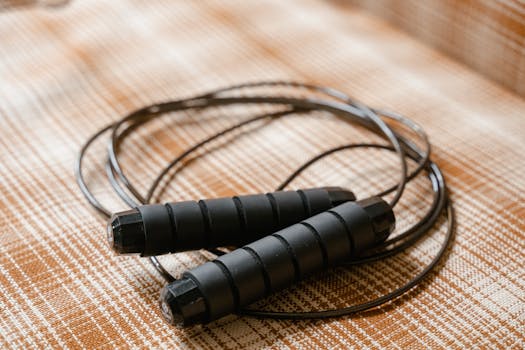7 Natural Menopause Treatments That Really Work: The Guide
Nov 25, 2024
Menopause is a natural transition that every woman goes through, typically between the ages of 45 and 55. While it's a normal part of the aging process, the hormonal changes that occur during this time can bring about a range of uncomfortable symptoms, including hot flashes, night sweats, mood swings, and fatigue. Fortunately, there are several natural menopause treatments that can help alleviate these symptoms and restore balance to your body.
In this comprehensive guide, we'll explore seven effective natural remedies that have been proven to work for managing menopause symptoms. From dietary adjustments to herbal supplements and lifestyle changes, these strategies offer a holistic approach to regaining control and thriving during this transitional phase.
1. Embrace a Plant-Based Diet Rich in Phytoestrogens
A plant-based diet rich in phytoestrogens can be a game-changer for managing menopause symptoms. Phytoestrogens are plant compounds that mimic the effects of estrogen in the body, helping to balance hormone levels and alleviate symptoms like hot flashes and vaginal dryness.
Some excellent sources of phytoestrogens include:
Soy products (tofu, tempeh, edamame)
Flaxseeds
Legumes (lentils, chickpeas, beans)
Whole grains
Fruits (berries, apples, oranges)
Incorporating these foods into your diet can provide a natural estrogen boost and help regulate hormonal fluctuations during menopause. However, it's essential to consult with your healthcare provider before making significant dietary changes, as individual needs may vary.
Check out our Menopause Diet Plan for a comprehensive guide to nourishing your body during this transition.
2. Harness the Power of Herbal Remedies
Black Cohosh: A Natural Ally
Black cohosh, a Native American herb, has been used for centuries to alleviate menopause symptoms. This powerful plant contains compounds that mimic the effects of estrogen, helping to reduce hot flashes, night sweats, and mood disturbances.
Several studies have demonstrated the effectiveness of black cohosh in managing menopause symptoms. One study published in the journal Obstetrics & Gynecology found that black cohosh was as effective as hormone replacement therapy (HRT) in reducing hot flashes and night sweats.
Other Beneficial Herbs
In addition to black cohosh, other herbs that may help with menopause symptoms include:
Chasteberry (Vitex agnus-castus): Helps regulate hormones and alleviate hot flashes, mood swings, and breast tenderness.
Red clover: Rich in isoflavones, which can help reduce hot flashes and improve bone health.
Evening primrose oil: May help with vaginal dryness and breast tenderness.
Always consult with your healthcare provider before starting any new herbal supplement regimen, as some herbs may interact with medications or have potential side effects.

3. Embrace Mindfulness and Stress Management
Stress and anxiety can exacerbate menopause symptoms, creating a vicious cycle of discomfort. Incorporating mindfulness practices and stress management techniques into your routine can help alleviate symptoms and promote overall well-being.
Some effective strategies include:
Meditation and deep breathing exercises
Yoga and gentle stretching
Journaling and expressing emotions
Seeking support from friends, family, or a therapist
By cultivating a sense of calm and inner peace, you can better manage the physical and emotional challenges of menopause.
Check out our Menopause Self-Care Strategies for more tips on nurturing your mind and body during this transition.
4. Stay Active and Exercise Regularly
Regular exercise can be a powerful ally in managing menopause symptoms. Physical activity not only helps alleviate hot flashes and mood swings but also promotes better sleep, bone health, and overall well-being.
Some recommended exercises for menopause include:
Low-impact cardio (walking, swimming, cycling)
Strength training (resistance bands, weightlifting)
Yoga and Pilates
Tai chi and other mind-body practices
Aim for at least 150 minutes of moderate-intensity exercise or 75 minutes of vigorous exercise per week, spread out over several days.
Check out our Thriving Post-Menopause Health & Fitness Strategies for a comprehensive guide to staying active and fit during this phase of life.

5. Prioritize Quality Sleep
Sleep disturbances are a common complaint during menopause, often exacerbated by hot flashes, night sweats, and hormonal fluctuations. However, getting enough quality sleep is crucial for managing menopause symptoms and promoting overall health and well-being.
Here are some tips for improving sleep during menopause:
Establish a consistent sleep schedule
Create a cool, comfortable sleep environment
Practice relaxation techniques before bedtime (e.g., deep breathing, meditation)
Limit caffeine and alcohol intake, especially in the evening
Consider natural sleep aids like melatonin or valerian root (consult your healthcare provider first)
By prioritizing rest and relaxation, you can help your body and mind recharge and better manage the challenges of menopause.
6. Explore Acupuncture and Traditional Chinese Medicine
Acupuncture and traditional Chinese medicine (TCM) have been used for centuries to address a variety of health concerns, including menopause symptoms. These ancient practices aim to restore balance and harmony within the body by manipulating the flow of energy (qi) along specific pathways (meridians).
Several studies have shown that acupuncture can be an effective treatment for hot flashes, mood disturbances, and other menopause-related symptoms. One study published in the journal Menopause found that acupuncture was as effective as hormone therapy in reducing hot flashes and improving quality of life.
In addition to acupuncture, other TCM practices that may help with menopause symptoms include:
Herbal remedies (e.g., dong quai, black cohosh, licorice root)
Dietary therapy (adjusting the balance of yin and yang foods)
Qigong and tai chi (mind-body exercises)
It's important to work with a qualified and experienced TCM practitioner to ensure safe and effective treatment.
7. Consider Bioidentical Hormone Therapy
While hormone replacement therapy (HRT) has been a common treatment for menopause symptoms, it carries potential risks and side effects. Bioidentical hormone therapy (BHRT) offers a natural alternative that may be safer and more effective for some women.
BHRT uses hormones derived from plant sources that are chemically identical to those produced by the human body. These hormones are customized to each individual's unique needs and can help alleviate a wide range of menopause symptoms, including hot flashes, vaginal dryness, and mood changes.
One of the key advantages of BHRT is that it is tailored to each woman's specific hormone levels and needs. This personalized approach can help minimize potential side effects and ensure optimal symptom relief.
It's important to work with a qualified healthcare provider who specializes in BHRT to ensure proper dosing and monitoring.
Conclusion
Menopause is a natural transition, but that doesn't mean you have to suffer through the symptoms. By embracing a holistic approach that combines dietary changes, herbal remedies, stress management, exercise, and personalized treatments like BHRT, you can regain control and thrive during this phase of life.
At Getlila, we understand the unique challenges of menopause and are dedicated to providing comprehensive, AI-powered solutions to support your health and well-being. Our team of experts combines cutting-edge technology with personalized guidance to help you navigate this transition with confidence and ease.
Take the first step towards a more balanced, symptom-free menopause experience. Sign up for our AI-powered personal training program today and let us guide you on a journey towards optimal health and vitality.
Ready to Simplify Weight Loss?
Download the Lila app or visit getlila.com to start your journey. Experience the power of an AI-driven approach designed to adapt to your changing body and unique needs. Embrace holistic weight loss with Lila—because you deserve to feel strong, confident, and truly yourself again.
Disclaimer: This article is for informational purposes only and does not substitute professional medical advice. Consult a healthcare provider for personalized recommendations.
You should not have to do it all on your own











